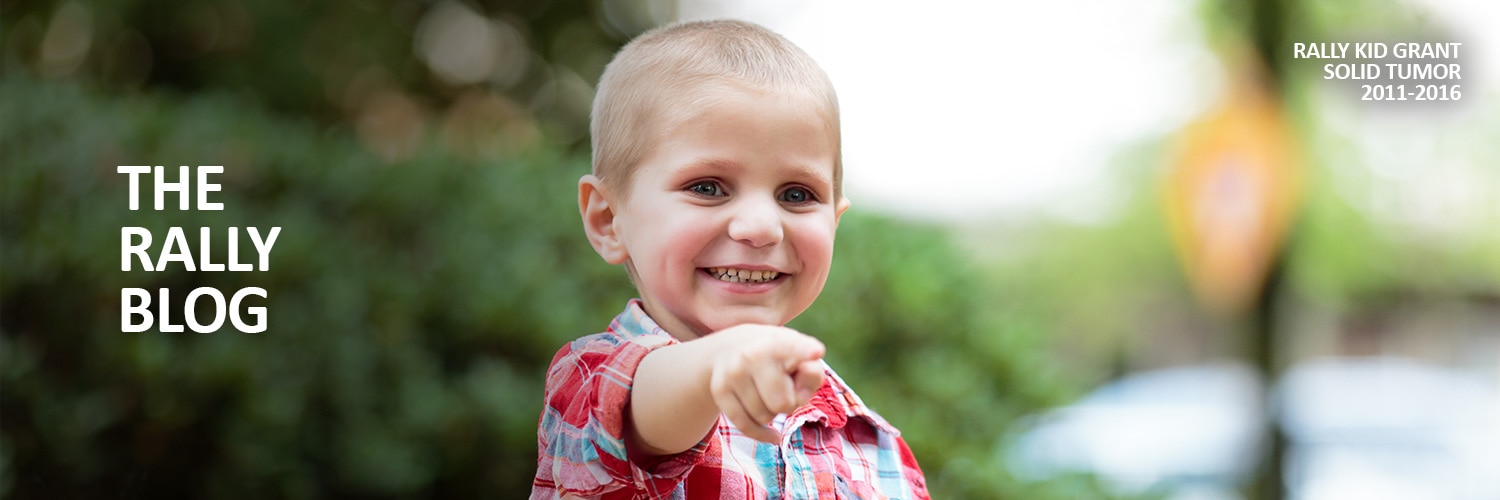
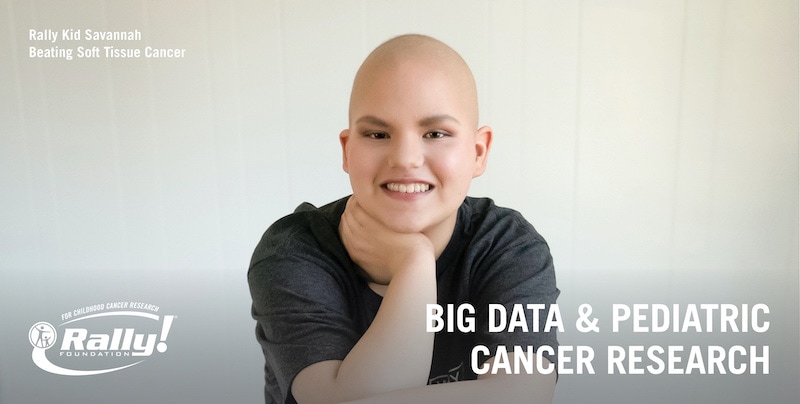
What is Big Data and Childhood Cancer Research
After being born and living in Turkey my whole life, I came to the US for college to study biological sciences at the University of Chicago. When the laboratory research internship I found for the summer of my first year was cancelled due to COVID-19, I joined a resume match program of my school’s Career Advancement Office, which matched students with employers based on experience and preferences. It was initially through this program that I matched with the Pediatric Cancer Data Commons (PCDC) and started working as their undergraduate summer intern. Later, this internship extended into a part-time job, and I worked with them for nearly a year. Previously in high school, I had worked with a non-profit organization called Cancer Warriors (Kanser Savaşçıları) for more than a year. Through this organization, I had visited the pediatric hematology and oncology departments of an...
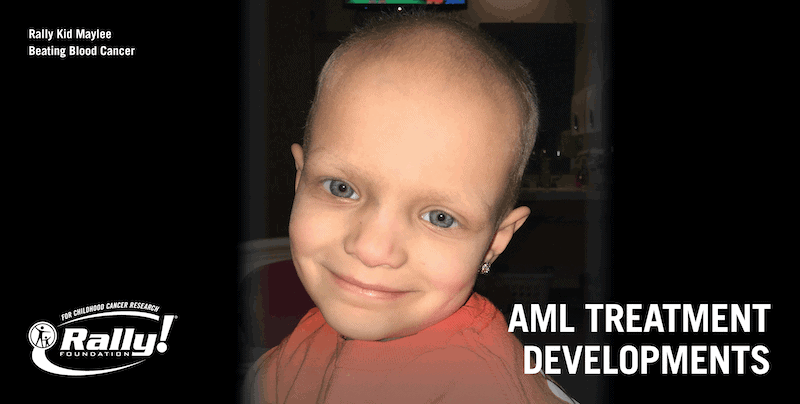
AML Treatment Developments
Rally Foundation for Childhood Cancer Research is excited to announce new developments in the treatment of childhood acute myeloid leukemia (AML) emerging from research in the Meshinchi laboratory at the Fred Hutchinson Cancer Research Center (Fred Hutch) in Seattle. Immunotherapy is a type of treatment that harnesses the immune system to kill cancer cells. To avoid toxicity and unpleasant side effects of treatment, researchers search for molecules or a “target” on the surface of cancer cells that do not exist on normal cells, so only the targeted cancer cells are attacked by the immune system. Such immunotherapies, including Chimeric Antigen Receptor (CAR) T-cell immunotherapy, have been successful in the treatment of acute lymphoblastic leukemia (ALL). Identification of such targets for AML has been more challenging because many of the targets found on AML cancer cells are also...
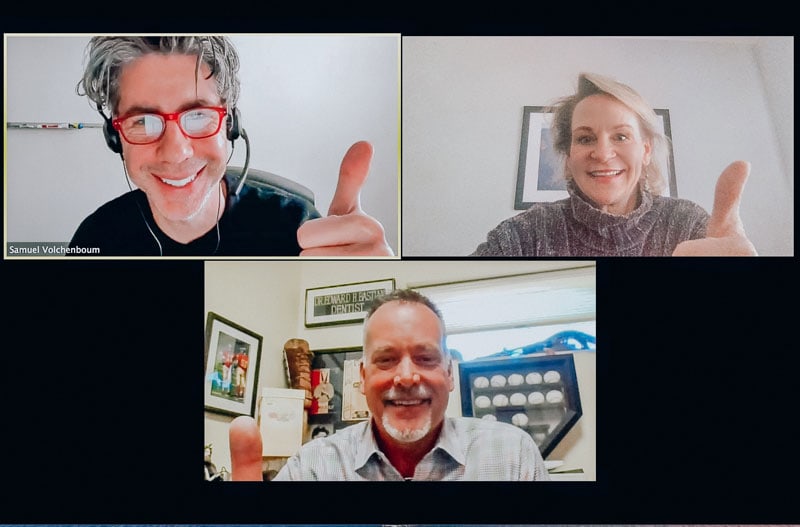
The Spark Has Ignited A Fire: How Rally’s Seed Funding Paved the Way for Dr. Volchenboum and the PCDC
At Rally Foundation for Childhood Cancer Research, we often describe ourselves as “philanthropic seed investors in the next great discovery.” That’s because Rally invests early and continues to invest as projects make progress. It’s also because we like to take a few risks when it comes to funding the more “unconventional” research projects. After all, it only takes one spark to light a fire, and that spark—that next great discovery—could pave the way to finding a cure. Dr. Sam Volchenboum’s Pediatric Cancer Data Commons (PCDC) was one of those “unconventional” projects that sparked a glorious fire—all because of Rally Kid Ruby, her father Dr. Jonathan Kaufman, and our shared desire to fund groundbreaking research for childhood cancer. How It Started It all started back in 2015, when Rally Kid Ruby was diagnosed with embryonal rhabdomyosarcoma, a form of soft tissue cancer. Being the...
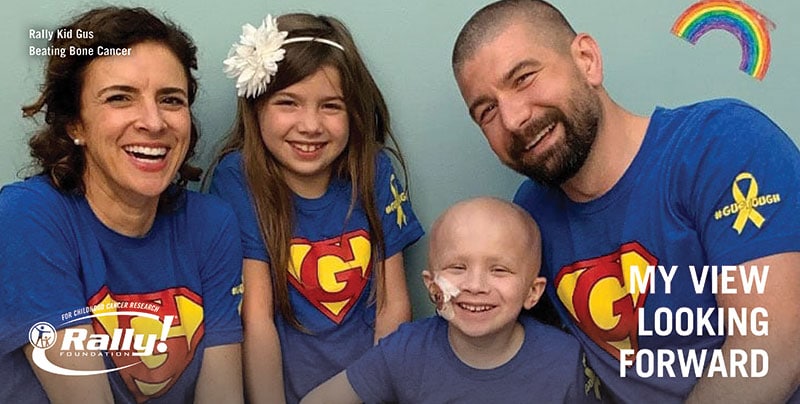
My View Looking Forward
Before cancer, I was never a morning person, but now I love waking up in my home with the entire family under one roof. Most nights, I wake up around 3 am in a panic. Did I dream up this terrible nightmare that my 4-year-old son had cancer and had four inches of his leg cut off? I rush to Gus’s room to check on him and sometimes lay next to him. I tell him I love him to the moon and back and that I am so proud of him. I know these moments are what matter most in life. Right now, it is easy to get sidetracked by arguments over vaccine hesitancy or mask mandates that are still in place. I wish everyone would slow down and view this as an opportunity to help their neighbor. Believe me, it could be so much worse. I have watched a handful of families lose their children to childhood cancer and have been humbled and blessed by their friendship. We share the common bond of childhood cancer....
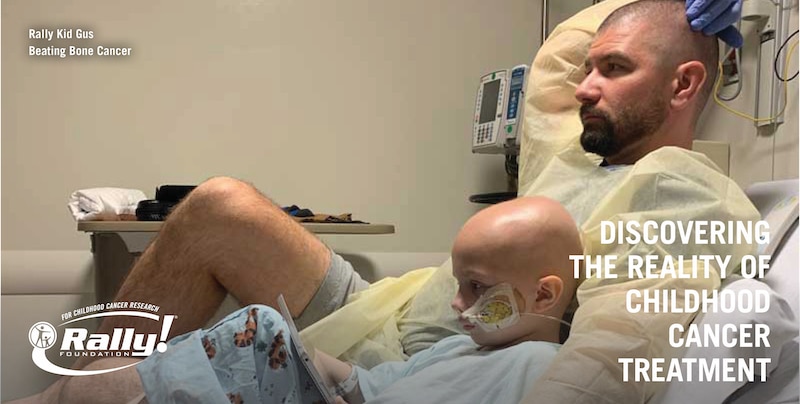
Discovering the Reality of Childhood Cancer Treatment
On our diagnosis day, we were told that our four-year-old Gus had Ewing Sarcoma. What doctors didn’t know was the particular type or variant he had. Tumor Sequencing Tumor sequencing is vital, as some variants of Ewing’s sarcomas have poorer outcomes, require specific drugs, and prohibit the use of other drugs. The variant determines the treatment plan. Parents need to know the type of cancer their child is fighting- and if the hospital doesn’t know, parents should demand to have the tumor genetically sequenced. As Dean taught me, “The pathology report is king.” Treatment I could go on and on about the horrors of the treatment Gus endured: scary nights when our son’s heart was beating so fast it seemed as though he was having a heart attack… or beating so slowly that he was unresponsive; the endless needle pokes for blood and platelet transfusions; the horrific bowel movement issues;...
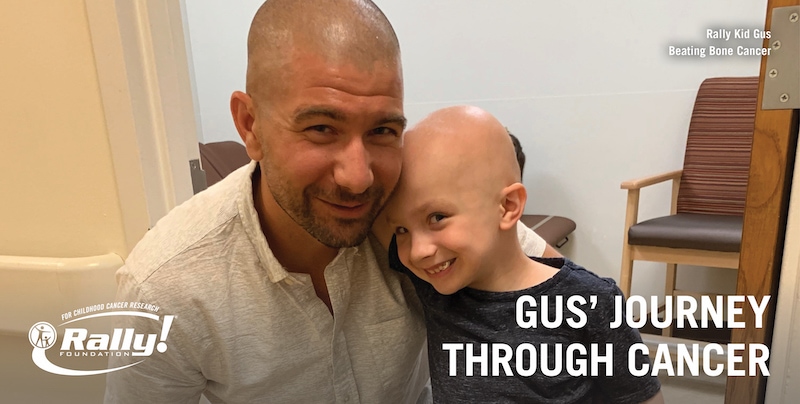
Gus’ Journey Through Cancer
Gus, my 4-year-old son, was chasing me down the stairs on our way to the basement for our early morning workout. This particular morning, Gus jumped from the stairs onto the floor and took an extra step. Something seemed off, but he didn’t complain after he landed, so we moved on with our day. That afternoon, Gus complained about pain in his leg when his mom, Heidi, picked him up from preschool. But by that evening, he was running around again. The following morning, he was limping, though not complaining, but by night he had a low-grade fever and intense leg pain. DIAGNOSIS The next morning, Heidi took Gus to Urgent Care, and after an X-ray, they were immediately sent to the Children’s Hospital. After 24 long hours and some preliminary imaging, Heidi and I were told by a seasoned diagnostic radiologist that he was 98% sure Gus had a bacterial infection in his leg. The radiologist...

What is Big Data and Childhood Cancer Research
After being born and living in Turkey my whole life, I came to the US for college to study biological sciences at the University of Chicago. When the laboratory research internship I found for the summer of my first year was cancelled due to COVID-19, I joined a resume match program of my school’s Career Advancement Office, which matched students with employers based on experience and preferences. It was initially through this program that I matched with the Pediatric Cancer Data Commons...

AML Treatment Developments
Rally Foundation for Childhood Cancer Research is excited to announce new developments in the treatment of childhood acute myeloid leukemia (AML) emerging from research in the Meshinchi laboratory at the Fred Hutchinson Cancer Research Center (Fred Hutch) in Seattle. Immunotherapy is a type of treatment that harnesses the immune system to kill cancer cells. To avoid toxicity and unpleasant side effects of treatment, researchers search for molecules or a “target” on the surface of cancer cells...

The Spark Has Ignited A Fire: How Rally’s Seed Funding Paved the Way for Dr. Volchenboum and the PCDC
At Rally Foundation for Childhood Cancer Research, we often describe ourselves as “philanthropic seed investors in the next great discovery.” That’s because Rally invests early and continues to invest as projects make progress. It’s also because we like to take a few risks when it comes to funding the more “unconventional” research projects. After all, it only takes one spark to light a fire, and that spark—that next great discovery—could pave the way to finding a cure. Dr. Sam Volchenboum’s...

My View Looking Forward
Before cancer, I was never a morning person, but now I love waking up in my home with the entire family under one roof. Most nights, I wake up around 3 am in a panic. Did I dream up this terrible nightmare that my 4-year-old son had cancer and had four inches of his leg cut off? I rush to Gus’s room to check on him and sometimes lay next to him. I tell him I love him to the moon and back and that I am so proud of him. I know these moments are what matter most in life. Right now, it is easy to...

Discovering the Reality of Childhood Cancer Treatment
On our diagnosis day, we were told that our four-year-old Gus had Ewing Sarcoma. What doctors didn’t know was the particular type or variant he had. Tumor Sequencing Tumor sequencing is vital, as some variants of Ewing’s sarcomas have poorer outcomes, require specific drugs, and prohibit the use of other drugs. The variant determines the treatment plan. Parents need to know the type of cancer their child is fighting- and if the hospital doesn’t know, parents should demand to have the tumor...

Gus’ Journey Through Cancer
Gus, my 4-year-old son, was chasing me down the stairs on our way to the basement for our early morning workout. This particular morning, Gus jumped from the stairs onto the floor and took an extra step. Something seemed off, but he didn’t complain after he landed, so we moved on with our day. That afternoon, Gus complained about pain in his leg when his mom, Heidi, picked him up from preschool. But by that evening, he was running around again. The following morning, he was limping, though not...
